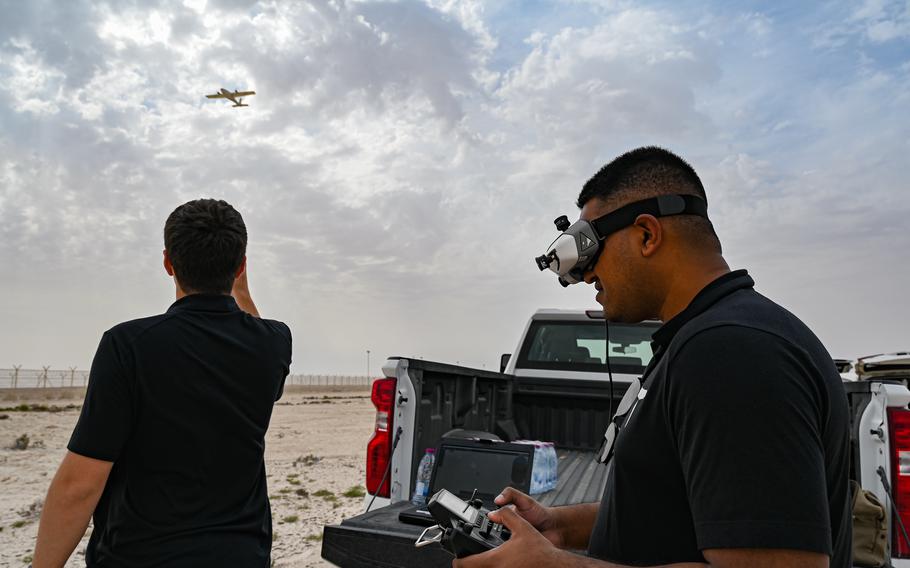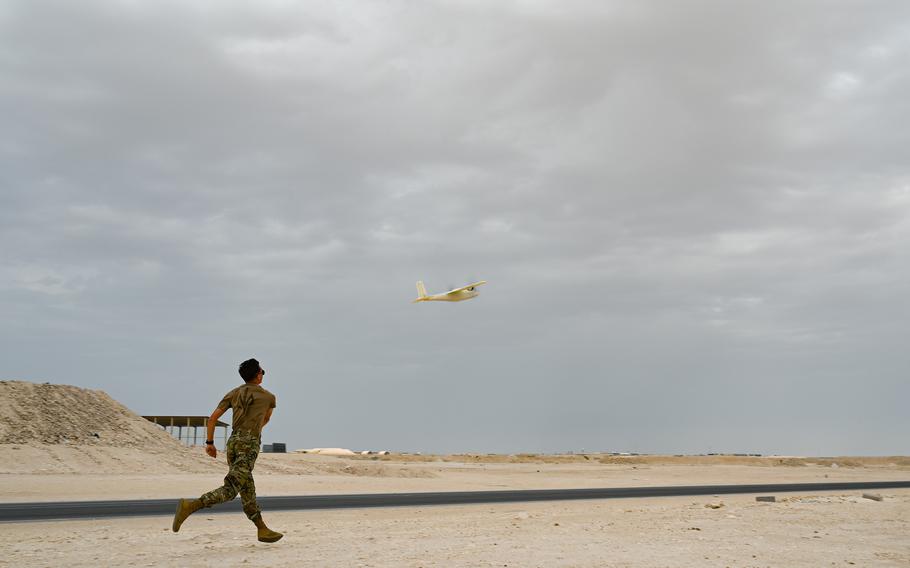
Titan Dynamics CEO Mohammad Adib remotely controls a newly developed unmanned aerial system with U.S. Air Forces Central’s Task Force-99 March 15, 2024. The drones were designed, printed and flying in less than 48 hours. (U.S. Air Force)
The Air Force’s tech group in the Middle East recently tested software that lets it quickly print air drones capable of delivering first aid to injured troops, the service said.
The Task Force 99 unit designed, built and flew a medical delivery drone to a location 30 miles away.
“We now have the flexibility to customize a drone for that mission in 48 hours or less,” Col. Mark Whisler, commander of the task force, said in a statement. “That’s pretty awesome.”
Task Force 99 is headquartered at Al Udeid Air Base in Qatar and was founded in 2022 with the goal of field-testing unmanned systems and artificial intelligence technologies in the Middle East.
“The goal of our project was to be able to quickly design a fixed wing small (aerial drone) within minutes, build it within hours, be able to employ it in the same day, and do that in the field right at the point of need,” Col. Dustin Thomas said in the statement.
Thomas is a fellow with the Air Force’s Blue Horizon think tank program, which participated in the testing along with Titan Dynamics, a California-based tech company.

An airman assigned to U.S. Air Forces Central’s Task Force-99 launches a newly developed unmanned aerial system March 15, 2024. The drones were designed, printed and flying in less than 48 hours. (U.S. Air Force)
A video on Titan Dynamics’ website explains that their software allows users to change what kind of payload or power source a drone will carry. The software then projects how these alterations affect the craft’s performance.
The U.S. military has been testing drones to deliver first aid and medical supplies, such as blood. Military medical officials told Stars and Stripes in 2022 that they believe blood delivery to the battlefield via drone could be faster and cheaper than sending in helicopters.
The software being tested by Task Force 99 also can design other types of drones, including one-way attack drones, the Air Force statement said.
Also known as loitering munitions, these low-cost, explosive drones can stay airborne until the moment they attack their target. They have been used by Russia against Ukrainian troops and by militant groups against U.S. bases in Syria and Iraq. And Task Force 99 is looking into one-way attack drones, Lt. Gen. Alexus Grynkewich, top general for the Air Force in the Middle East, told reporters last year.
No use is off the table, Titan Dynamics CEO Mohammad Adib said in the statement.
“Our vision is that you could build any kind of service that you need in the field,” Adib said. “Any kind of (surveillance) platforms, loitering munitions, communications, relocations, relays, mapping aircraft, you name it.”